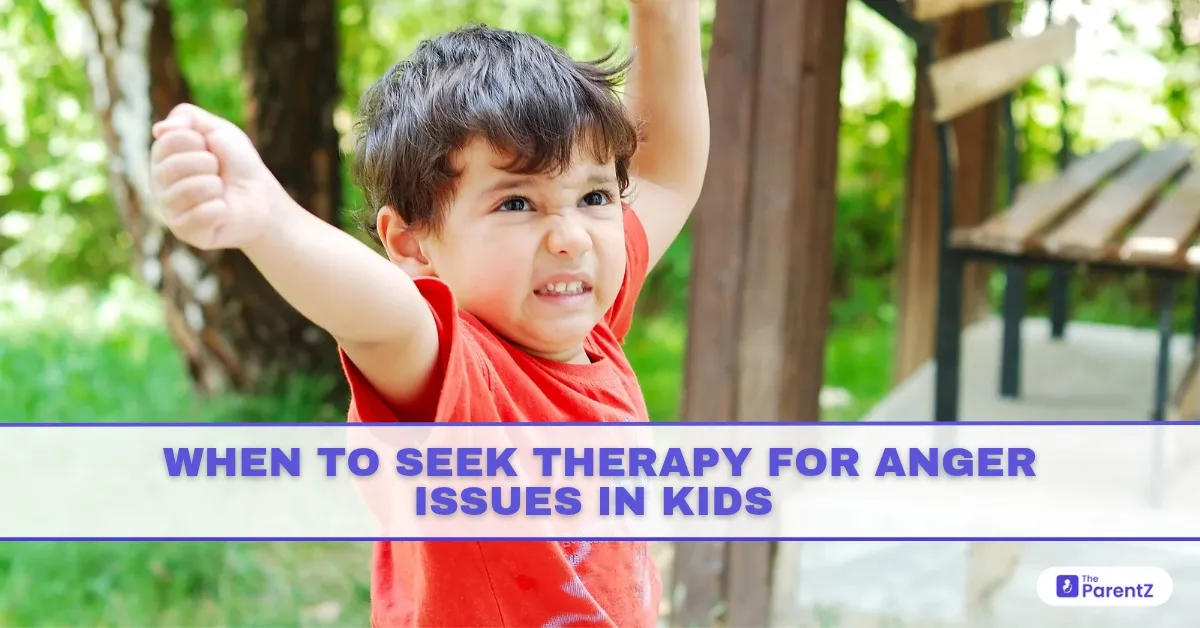Anger is a natural emotion experienced by children of all ages, often emerging during periods of frustration, boundary-testing, or developmental change. While occasional outbursts are considered a normal part of growing up, persistent or intense anger may signal underlying emotional or behavioral issues that require therapeutic intervention.
Recognising when anger shifts from typical behaviour to a potential concern is crucial for early support and effective management. Timely therapeutic involvement can prevent escalation, improve emotional regulation, and enhance a child’s functioning at home, school, and in social settings.
Understanding Normal vs. Concerning Anger in Children
It is developmentally appropriate for young children, particularly toddlers and preschoolers, to exhibit outbursts as they learn to express their emotions. However, the frequency, intensity, and context of angry behavior are key indicators of whether professional help may be needed.
Warning Signs That May Warrant Therapy
1. Aggressive Behavior
- Frequent hitting, biting, pushing, or destruction of property
- Physical aggression toward peers, siblings, or adults
- Intimidating or threatening behavior
2. Persistent or Uncontrolled Outbursts
- Tantrums or angry episodes that occur multiple times a day
- Outbursts lasting beyond what is typical for the child’s age
- Difficulty calming down after being triggered
3. Impairment in Daily Functioning
- Trouble maintaining friendships or participating in group activities
- Academic issues due to behavioral disruptions
- Conflicts with teachers or authority figures
4. Emotional Dysregulation
- Inability to express frustration or disappointment in healthy ways
- Overreaction to minor issues
- Frequent mood swings and irritability
5. Family Stress and Disruption
- Household tension due to the child’s behavior
- Sibling fear or withdrawal
- Caregiver burnout or emotional distress
Potential Underlying Causes
Chronic anger in children may be a symptom of various underlying psychological or neurological conditions, including:
- Attention-Deficit/Hyperactivity Disorder (ADHD)
- Oppositional Defiant Disorder (ODD)
- Anxiety Disorders
- Depression
- Autism Spectrum Disorder (ASD)
- Trauma or exposure to violence
Assessment by a licensed mental health professional is essential to identify or rule out such causes and to tailor an appropriate treatment plan.
When to Seek Therapy
Therapy should be considered when:
- Anger persists for more than a few months and shows no signs of improvement
- The child’s behavior leads to academic decline, social isolation, or family dysfunction
- Parental strategies such as time-outs, rewards, or consistent routines are ineffective
- There is concern for safety—either the child’s own or others’
- The child expresses self-harm ideation, low self-worth, or intense guilt after episodes
Types of Therapy That Can Help
- Helps children understand their thoughts, recognise emotional triggers, and develop coping skills.
- Ideal for younger children who may not have the verbal skills to express their emotions directly.
- Focuses on strengthening the parent-child relationship and improving behavioural outcomes.
- Addresses systemic issues contributing to the child’s anger and improves communication among family members.
- If anger stems from adverse childhood experiences (ACEs), trauma-informed care is essential.
Conclusion
While occasional anger is a part of childhood, persistent and disruptive anger should not be overlooked. Early intervention through therapy can help children learn to manage their emotions, improve social and academic outcomes, and support healthier family dynamics. Caregivers, educators, and healthcare providers should collaborate to recognise the signs early and provide the child with the tools they need to thrive emotionally and behaviourally.






Be the first one to comment on this story.